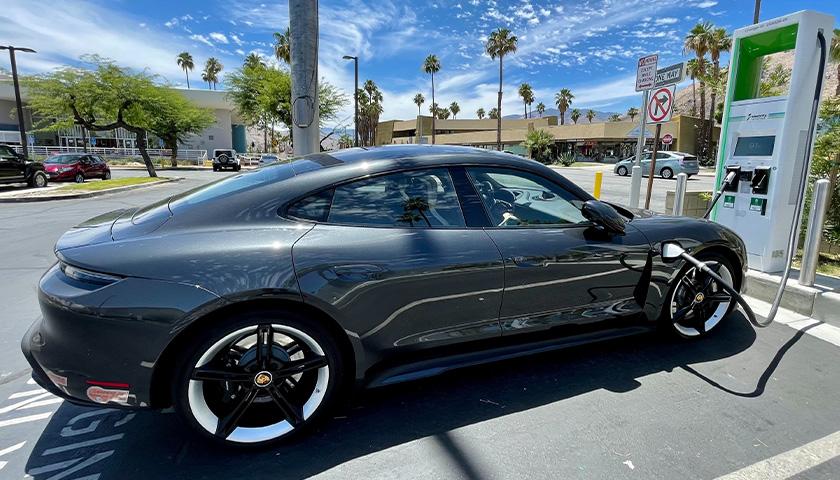by John Hugh DeMastri
Insurers are being forced to write off many electric vehicles with only minor damage to battery packs, sending the batteries to scrap yards and hindering the climate benefits of going electric, Reuters reported.
Battery packs typically represent roughly half the cost of an electric vehicle, sometimes costing tens of thousands of dollars, often making it more economical for insurers to consider a car as totalled than replace a battery pack, according to Reuters. While many carmakers, including Ford and GM, told Reuters that their battery packs were repairable, many are unwilling to share key data with third-party insurers to help assess damage.
 “The number of cases is going to increase, so the handling of batteries is a crucial point,” Christoph Lauterwasser, managing director of the research institute Allianz Center for Technology, told Reuters. “If you throw away the vehicle at an early stage, you’ve lost pretty much all advantage in terms of [carbon dioxide] emissions.”
“The number of cases is going to increase, so the handling of batteries is a crucial point,” Christoph Lauterwasser, managing director of the research institute Allianz Center for Technology, told Reuters. “If you throw away the vehicle at an early stage, you’ve lost pretty much all advantage in terms of [carbon dioxide] emissions.”
Allianz, an insurance firm and parent company of Allianz Center for Technology, has seen cases where battery packs were scratched, and likely had undamaged internals, but a lack of access to diagnostic data forced the company to write off the vehicles, Reuters reported. Producing electric vehicle batteries emits much more in terms of carbon dioxide emissions than producing a gas-powered car, in some cases requiring an electric car to rack up more than 10,000 miles before it makes up for the additional emissions in production, according to a Reuters estimate.
It cost roughly $206 per month on average to insure an electric vehicle in 2023, 27% more than gas-powered cars, Reuters reported, citing online brokerage Policygenius. Without access to diagnostic data, it is likely that insurance costs will climb as more electric vehicles are sold and low-mileage cars are scrapped.
Electric vehicle and battery production are both expected to climb dramatically by 2026, off the back of more than $120 billion in investments, according to the Environmental Defense Fund. Annual production of electric vehicles is projected to climb from roughly 1 million per year in 2023 to 4.3 million in 2026, while annual battery production is expected to climb from 2.4 million per year in 2023 to 11.5 million per year in 2026.
President Joe Biden has made electric vehicle tax credits, from his signature Inflation Reduction Act, a cornerstone of his domestic policy. While Biden’s plan was initially forecast to cost roughly $30 billion in tax breaks over the next 10 years, the surge of domestic investments has caused private analysts to reevaluate the cost of the tax breaks to more than $136 billion.
– – –
John Hugh DeMastri is a reporter at Daily Caller News Foundation.
Photo “Electric Vehicle” by Bob Osias.






William – The world seemed to be clicking along at a pretty safe and fast pace until you greenies started putting imagined problems over the well-being of citizens. The ungodly federal government push and subsidizing of electric vehicles is the pinnacle of stupid.
BTW, ride the stinking city buses if you want to. I will be driving my private, gasoline powered car, thank you.
The minerals that these electric vehicles rely on are toxic to the people who live in the parts of the world from which these minerals for batteries are extracted. Moreover, electric vehicles do not address the problem of gridlock and traffic congestion. Truth be told, the Earth has more vehicles than it does people. We have too many private vehicles and not enough public transit or pedestrian-friendly areas. Until we address these two problems, electric vehicles will only be a bandage, not a cure.